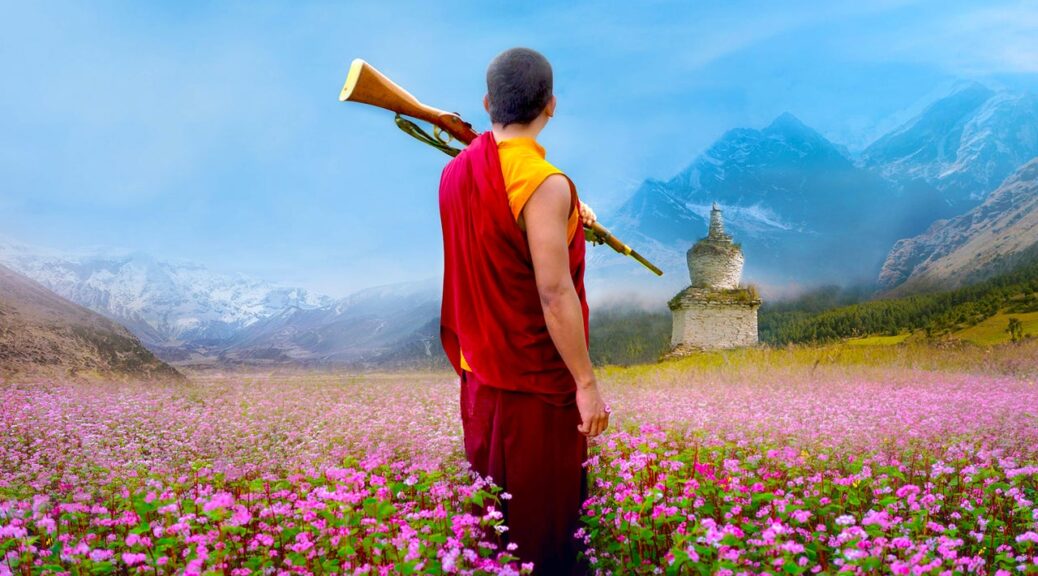The Monk and the Gun
by Matt Weiner
What if you took the interlocking stories of a Pulp Fiction, but all the gunplay was in the service of a hopeful Buddhist fable?
It’s a fantastical idea, but the film recognizes that so is the sight of a peaceful country being “forced” to go through the early throes of democratic governance. For The Monk and the Gun, there’s no great upheaval accompanying these sweeping changes.
Instead, Pawo Choyning Dorji’s delightful second feature (after 2019’s Oscar-nominated Lunana: A Yak in the Classroom) takes place in the aftermath of the King of Bhutan choosing to abdicate the throne and hold modern elections.
The rural village of Ura is holding mock elections to help prepare its residents, whose reactions to the abdication range from apathy or disinterest to outright hostility toward those voting for parties that do not seem aligned with the former monarch’s views.
Tshering Yangden (Pema Zangmo Sherpa), an elections official from the city, arrives in town to oversee the practice election and educate voters on why democracy matters. Her big city assurances about the great import of the election contrast with Ura’s locals, who question if they really need something that they don’t have to fight for.
As Yangden grapples with proving that democracy is as sacred as the campaign posters around the village proclaim, the village Lama (Kelsang Choejey) instructs his monk Tashi (Tandin Wangchuk) to bring two guns for the full moon ceremony so that the lama can “make things right” in the presence of the election official.
Tashi diligently follows his master’s odd (and unsettling) request, which gets the unassuming young monk caught up with an unscrupulous American gun collector (Harry Einhorn) and the criminal underbelly of Bhutan. While The Monk and the Gun is mostly bucolic satire, it’s a credit to writer/director Dorji that the ominous unease surrounding the ceremony persists up until the very end. Being given the means to control your life—and your national destiny—is serious stuff. But along the way, his film pokes both inward at itself and outward at the west, suggesting that nobody has a monopoly on the best way forward for a community.

